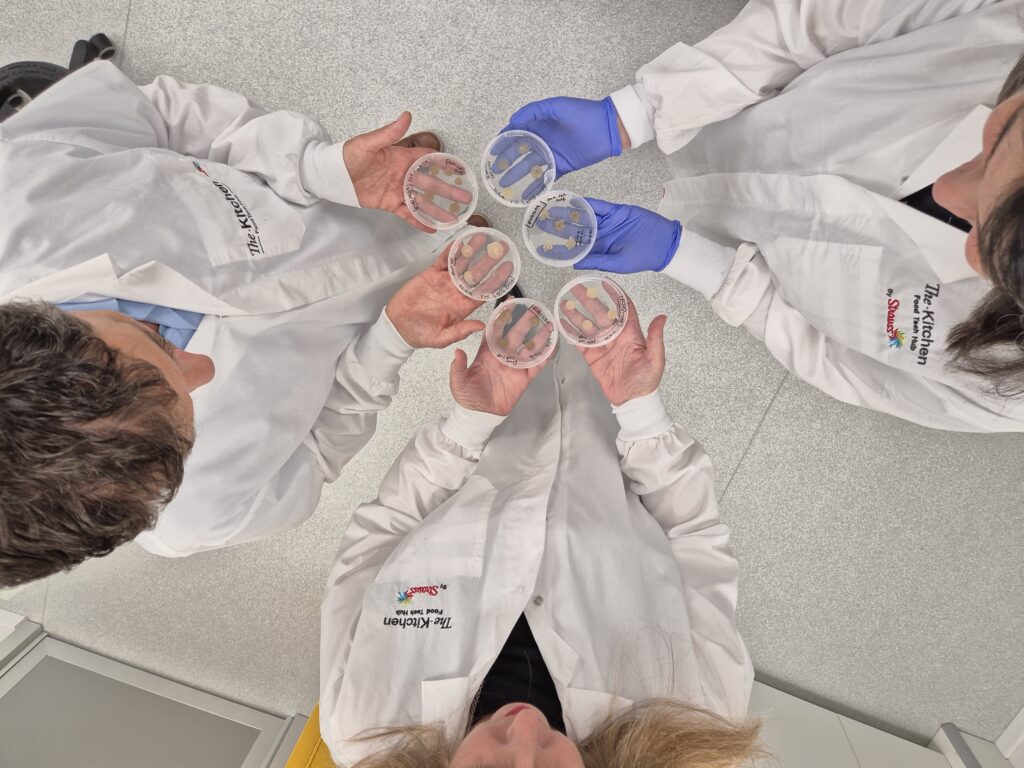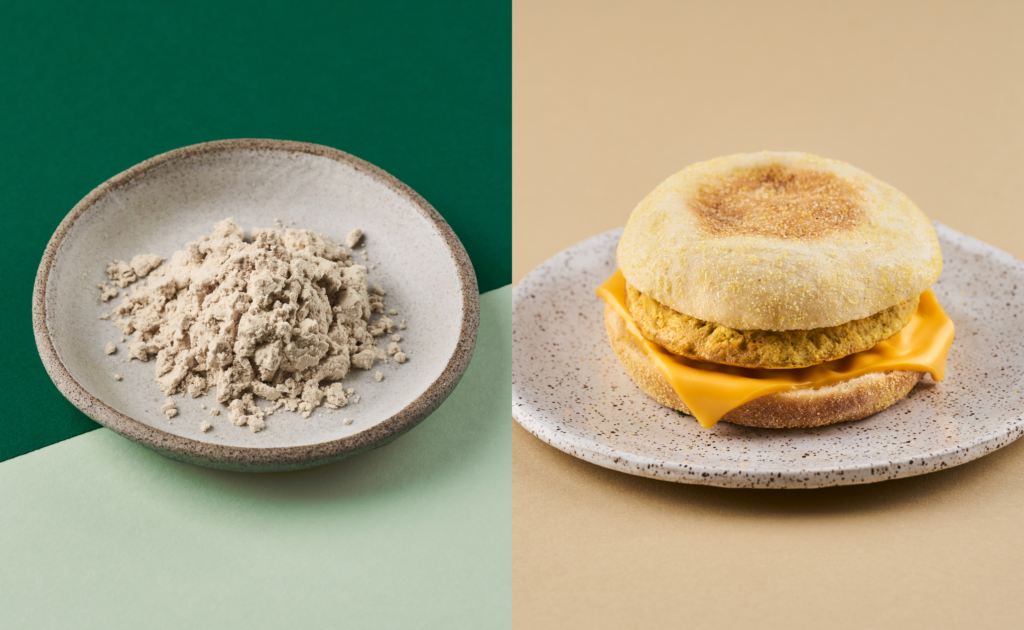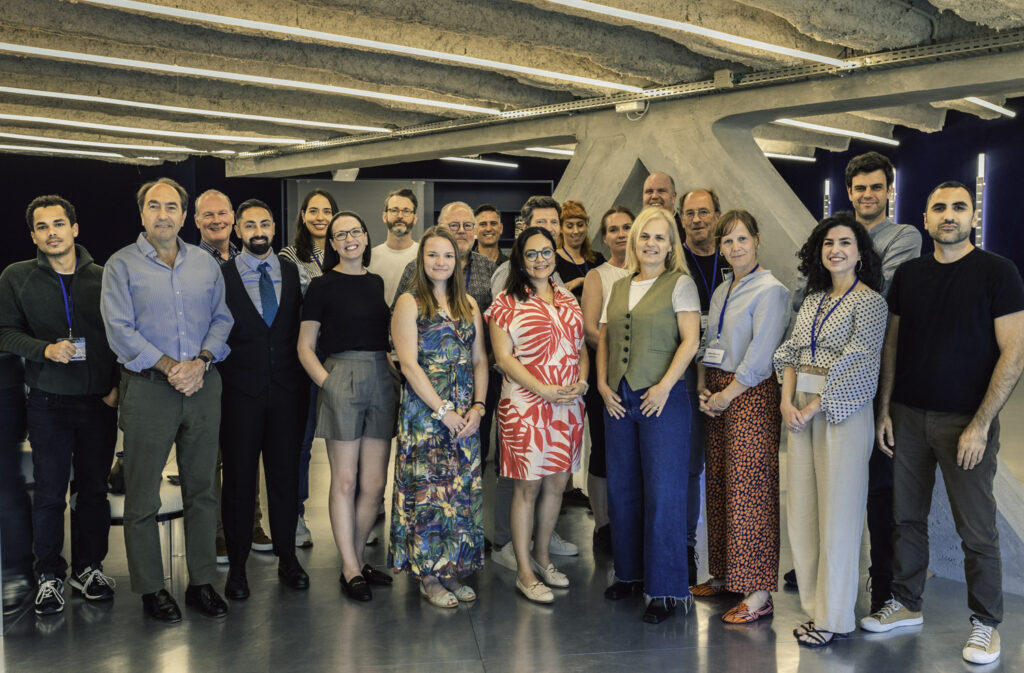
The EU has extended its track record of investing in climate-smart food tech startups amid rising inflation and environmental threats in the region.
EIT Food’s RisingFoodStars, an EU-backed programme to help agrifood tech startups scale up, has announced 16 members for its 2025 cohort.
The startups’ focus spans alternative proteins, low-carbon alternatives to staple ingredients, sustainable agriculture, and eco-friendly packaging, which are helping tackle climate-change-induced supply chain risks, agricultural emissions (which only reduced by 2% between 2005 and 2022) and growing food inflation.
“With food inflation at 3.3% year-on-year – still the EU’s top cost-of-living driver – and climate disruption threatening core ingredients, the need for scalable agrifood innovation is more urgent than ever,” said Narjis Chakir, programme lead at RisingFoodStars.
“Our 2025 cohort brings tangible, science-led solutions, from carbon-smart farming to sustainable proteins, and we’re here to help them scale fast, access markets, and drive real transformation.”
EU bets on cocoa and palm oil alternatives

Of the 16 startups, eight are producing future-friendly food ingredients via fermentation and other forms of cellular agriculture. UK-based Clean Food Group and Finland’s Perfat Technologies are both developing fat substitutes that can enable companies to transition away from polluting ingredients like palm oil.
Clean Food Group turns food waste into oils and fats by fermenting scalable yeast strains, with the ingredients suitable for both human and pet food, as well as cosmetics. Perfat Technologies, meanwhile, is leveraging advanced oleogel tech to create solid fat alternatives that are nutritionally and environmentally superior to unsaturated fats such as butter, palm oil, and coconut oil.
Also part of the cohort are two Israeli companies focused on decarbonising the cocoa industry with cell-based alternatives. Kokomodo grows its version all year round in controlled environments, which is optimised for functional health benefits in food and nutraceuticals.
And Celleste Bio produces cocoa butter and powder from cell culture technology, while applying computational models to drive innovation in the chocolate industry.
Palm oil is omnipresent in the CPG world, but is directly linked to large-scale tropical deforestation and human rights abuses. Its use in the chocolate industry contributes to dark chocolate’s sky-high emissions (only beef produces more greenhouse gases per kg), and climate change itself has decimated cocoa yields, leading to all-time-high prices.
In the EU, 96.5% of cocoa is imported from regions unprepared for the climate crisis, which threatens the ingredient’s supply chain, so investing in alt-cocoa startups is a shrewd move.
Fermentation scores big

Precision fermentation is very much in the spotlight in 2025’s EIT Food RisingFoodStars cohort. Israel’s Imagindairy uses the technology to produce animal-free dairy proteins with the same flavour, mouthfeel, functionality and nutritional attributes of their conventional counterparts. Its AI-driven platform allows it to produce the ingredients in a cost-competitive manner, and it has received regulatory approval in both Israel and the US.
Based in Portugal, PFx Biotech leverages precision fermentation to produce speciality bioactive proteins, starting with human lactoferrin, an iron-regulating whey protein found in breast milk. It recently received €2.5M ($2.6M) from investors in a seed funding round.
In Germany, ProteinDistillery is upcycling beer waste with yeast to produce Prew:tein, which can act as an emulsifier, a gelling and foaming agent, and a binder to replace animal proteins and plant-based additives like methylcellulose in a host of products.
The other future food startup in the cohort is Adamo Foods. The London-based startup uses mycelium – the root-like structure of filamentous fungi – to create clean-label, whole-cut meat analogues that replicate the texture of animal muscle.
The EU’s bet on fermentation isn’t surprising. While plant-based and cultivated protein startups suffered from a 64% and 40% dip in venture funding, respectively, last year, fermentation firms attracted 43% more money – making it the only bright spot in the alternative protein sector.
EU is a leader in future food funding

Apart from the above, the cohort includes sustainable packaging startups Greentech Innovators and Kelpi, functional mushroom specialist Kääpä Biotech, and soil and crop solution firms FA Bio, Resurrect Bio, AgroSustain, Hudson River Biotechnology, and CroBio.
They will hope to add to the success of the RisingFoodStars initiative, which has supported 146 scale-ups since 2018, leading to 33 innovations coming to market, seven successful exits, and the creation of over 1,140 jobs. Alumni, which include seaweed packaging pioneer Notpla, animal-free dairy protein maker Verley, and palm oil alternative startup NoPalm Ingredients, have collectively raised €870M in funding.
The EU has been a keen investor in future food technologies. It spotlighted several startups at EIT Food’s flagship Next Bite event last year, has included a number of alternative protein firms in its accelerator programmes, and invested €50M in precision-fermented and algae-based foods via the European Innovation Council.
It’s part of the region’s broader leadership in research funding for alternative proteins. Since 2020, the region has pumped in €252M for future food research, half of which came in 2023 and early 2024, chiefly from the Horizon Europe programme, according to the Good Food Institute Europe.
This is because livestock farming accounts for 81-86% of agricultural emissions in the EU, despite only providing 35% of its calories and 65% of its protein supply.
Farmer groups and climate activists have both urged the EU Commission to deliver an action plan for plant-based food in its agrifood vision, a call backed by doctors, consumer groups, and even some of the largest food companies. While the Commission did not make that commitment in the final plan, it has pledged to create a protein diversification strategy to address the EU’s protein supply challenges.
The post EU Backs 16 Future Food Startups Tackling Climate Crisis appeared first on Green Queen.
This post was originally published on Green Queen.